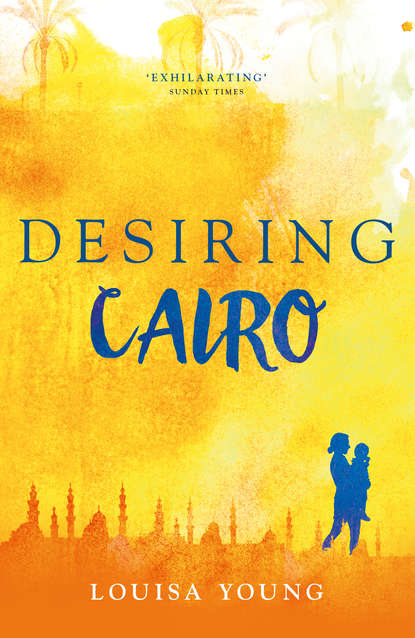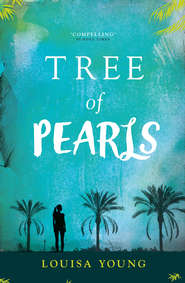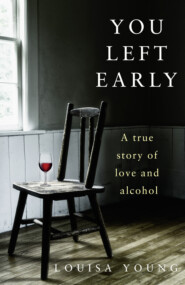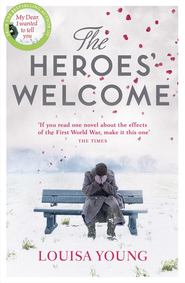По всем вопросам обращайтесь на: info@litportal.ru
(©) 2003-2024.
✖
Desiring Cairo
Автор
Год написания книги
2019
Настройки чтения
Размер шрифта
Высота строк
Поля
‘There is just one Sarah in London, is not her,’ he said.
I expressed doubt. He showed me how he had identified the S section of the book, and found Sarah’s Hair Fashion Studio in Lower Norwood, and told me that he had rung, but they hadn’t been his mother. I found myself thinking that I really ought to look after him better, and said that after I’d put Lily to bed I would help him. During tea he let her wear his Qur’anic verse pendant, so she ran to put on two of her tiaras and her plastic glittery Cinderella slippers. He didn’t know the story so she told him, then he had to be the prince and I had to be the Ugly Sisters and she was – as she is most days anyway, when she’s not being a baby animal of some description – Cinderella. When the time came for them to live happily ever after she almost burst with joy. Then he told her the story of Rhodopis, the girl with the rose-red slippers who married Pharaoh Amasis five hundred years before Christ. When I tucked her up later she announced that Hakim was her boyfriend, and could he live with us forever. Probably not, I said. We could marry him, she said, then he would. She wanted him to come and tell her Ali Baba and the Forty Thieves, and he did, including all the boiling oil and dismemberment of corpses, which I had been keeping from her.
When Lily the love fountain was asleep, I was at risk again. Eddie lurked, alive or dead. Spooking me with his … he threatened and hurt me, I hated him, I fucked him, he’s dead. That handsome, thrilling, madcap fellow; that dangerous violent psychotic liar.
Luckily Hakim wanted to cook my dinner. My gratitude was immense. Not for the meal – it was pretty much on the same level as Lily wanting to cook my dinner. Very sweet, hopeless, and more work for me than if I’d done it myself. But for the distraction. After half an hour or so of him being very confused by the contents of my kitchen (the garlic press delighted him), I taught him how to make pasta with sauce out of a pot. He had bought a couple of beers too, which was a relief for me because I am very bad at judging whether the Muslim I am sitting with is a drinking Muslim or not, and I hate to get it wrong. There are clues: if a man has a prayer mark on his forehead, a permanent bruise from the frequency and energy of his devotional prostrations, then I do not offer. If a woman is veiled, I do not offer. But here in London, where so many people are out of kilter with what they would be doing if they were at home, who is to know what to do? Many, many are the nebulous rules, the adjustable rules, the friable rules. I was once warned fair and square to have nothing to do with any man who drinks alcohol and reads the Qur’an: OK to do one or the other, but not both, because hypocrisy is the great sin. I was young and firm and unforgiving in those days, and I took that rule to heart; nowadays I’m a little gentler. Weaker. My standards have slipped. Anyway I am pleased that Hakim takes out his mat and prays in Lily’s bedroom, and I am pleased that he is willing to crack a beer with me and gossip, and with his youth and sweetness keep madcap monsters from my mental door.
‘So, is Sa’id married yet?’ I asked, flinging around for a subject, as we sat down to eat.
Hakim looked surprised at the suggestion. ‘Oh no,’ he said.
‘But he’s, what, twenty-five?’
‘No one is married now at twenty-five,’ he said. He peered at his beer and looked less than completely happy.
‘No one?’ I was surprised. Shagging about was definitely not on in Upper Egypt in my day, and not much in Cairo either, and where there is no shagging about there tends to be early marriage. Or some other arrangement.
Hakim screwed up his eyes and ran his fingers over his forehead, pressing above his eyebrows as if to dislodge something stuck inside. ‘No one,’ he said crossly.
‘Don’t be cross with me about it,’ I said mildly.
He looked up. ‘Not cross with you,’ he said, heartfelt, fearful of giving offence. ‘Of course not with you.’
He held my gaze, eye to eye, steady. It made me realise how seldom he caught my eye, let alone held it.
‘Things are strange to me here,’ he said. ‘At home you are tourist and the tourist, perhaps you know, is number one. And number two and number three and number four and so on. In Luxor for thousands of years we have been guardians of our palaces and graves, and people – you – have come to visit, and have brought money for the people who tend to visitors.’
It was one of those moments which make me want a cigarette. When someone starts to talk.
‘Let me tell you,’ he said. ‘During the Gulf War, when I was quite small. Not so small. After the houses where the people lived were knocked down and the big hotels all built, and the tourism schools teach that the tourist is always right; after they build the walls to hide the villages because the village isn’t so pretty, so they build the walls not the drains, anyway. Then there was the bombardment of Baghdad and the tourists don’t come, and everyone is scared, because so much is … spent for the people who will come. Just before the bombardment of Baghdad, when everything was just so … you know … I went with a visitor from Cairo to the grave of Thutmosis, in the valley of the kings, I think you know the one. There is a metal steps up the cliff, and climbing, and a pit, and steps down inside. My friend’s great-uncle was a guard in this grave. It is shaped like an egg, pale cheese colour with black pictograms, beautiful. The king made it hard to find, and now you just go every day.
‘You know photographs are not allowed in these graves without a pass. The flash destroys the picture. Too much light, too many people. One time, this day, four tourists come in and just start to take photographs with flash. The old man, the guard, says to them no photograph. All he can say in English, in French, in German (except also “Welcome Luxor”). He says it, in English, in French, in German. The tourists take no notice. He stands in front of them, in front of the pictograms. Then one tourist knocks him down. We came in next – me small boy and the lady visitor, the friend of my mother. The old man is on the floor, blood … the tourist taking photographs. The lady visitor picks him up, the tourist police come, fuss and bother, no one saw but everybody knows the old man is telling truth.’
‘So what happened?’
‘The old man was made to apologise.’
He looked at me straight, to see what I thought.
‘Luxor is a beautiful place but it is not good,’ he said. ‘No one is married before thirty because they have not enough money. Business is good for us but even for Sa’id to make enough money for himself to marry will take time. All the money is spent for him going to university, to Sorbonne, business studies – he did only one year, said he knew more than the professors, then economics. But everybody else is leaving school and not going to university. People come by so rich, tourists, Egyptians, Saudi, Europeans. And we are rich, my family. My father employs people. Sa’id does business with Cairo for him. We sell abroad, in Khan el-Khalili, we have the shop in Luxor and the fabrique on the West Bank. But Sa’id cannot marry. How is it for the poorer people? Wages are not good. The richness does not travel from the rich people to the poor. The poor people live in places that are built without permission and then the officials say they will knock them down and they will have nowhere to live. In Qurnah because the old village is just among the graves of the Nobles they are always trying to knock it down. They send in tanks, the village people come out with sticks. Just to show that they are people, who can hold sticks, not just some bit of litter. And now they build New Qurnah, and we are all to leave and go there.’
This was making me sad.
‘It’s the same everywhere, to one degree or another,’ I mumbled. Like that’s any comfort. But I have no sophisticated analysis of these situations. I just feel sad, and sometimes want to punch someone for not making the world a fair and just place. A reaction which has hardly changed since I was Lily’s age. Janie used to say there was no point because you can’t punch God. We stopped talking to him, though. Remained silent during ‘Onward Christian Soldiers’, and hoped he’d take the hint.
‘Many people at home are very unhappy,’ he said finally. ‘Things happen you don’t hear about here. The last years … But Egypt doesn’t make a big noise of it to the world because they don’t want the world to stop to come. And it’s just Egyptian people, so the world doesn’t mind.’
Of course I knew what he was talking about. Those single paragraphs you read in the sidebars of the foreign pages: four policemen killed in an ambush at Naqquada; train shot at, suspects, fundamentalists, reports say. Like any one of a thousand problems, that only flick our conciousnesses when they happen in places where we’ve been on holiday. If I lived in Qurnah I could never leave. The Nile before you, five thousand miles of Sahara at your back, ancient Thebes the bones of your home.
Hakim was looking at me. I couldn’t remember the last thing he’d said.
‘I make coffee,’ he said, and did.
Oh yes. It was, ‘It’s just Egyptian people, so nobody cares.’
Then Zeinab rang. What with one thing and another I hadn’t spoken to her since Hakim’s appearance, so I told her about him. Or as much as I could with him in the room. He gestured me furiously not to mention his mother, so I didn’t. She wanted to come and see him, to welcome him and to check him out. Of course I’d told her about Abu Sa’id, over the years. We decided she should come at the weekend, and bring the boys. Then Brigid rang, was I still on for tomorrow. Yes indeed I was. How many of them? Three boys and Caitlin. All night? Fine. They could go on the lilos on the floor in my room, in with me and Lily. Squashy!
Perhaps a midnight feast might be in order. It’ll be Friday after all. Hakim announced his intention to go to the mosque. Then my mother rang, saying would we come for lunch on Sunday; then Harry rang, saying he was sorry he rushed me off like that, and was I all right, and I lied that yes I was, and we had an awkward pause, and said well all right then, ’bye then.
And then Hakim and I sat down with the phone books and I showed him how we needed to look for Tomlinsons or Lockwoods rather than Sarahs, and after a long and interesting chain of calls I was able to give Hakim a piece of paper with two phone numbers on it. ‘There you go,’ I said. ‘Your mother. She’s a lecturer at a university by the sea. It’s about an hour away. She teaches Arabic.’
SIX (#ulink_589c0589-bc07-5c85-a477-bd3be522cfd7)
Tell Mama (#ulink_589c0589-bc07-5c85-a477-bd3be522cfd7)
I think there’s only one other thing I haven’t mentioned. Deep in the upholstery of the saggy old red armchair I keep in my study there is a very large sum of money. It is Janie’s ill-gotten gains from her career in pornography. I hid it there just over a year ago, having found it in a last tea-chest of her things that Mum had redeemed from the attic but not been able to face looking at. I hid the money in the hope that it would go away, because I didn’t want to face the ethical and emotional problems that it brought with it. Of course at the same time I didn’t want it to go away, too. It is a very large sum of money and I am after all a single mother of uncertain employment living in a council block, albeit in a separate kingdom on the most distant and salubrious storey of a pretty nice one. I haven’t counted it.
Mum asked me once, months later, what had been in the chest. I didn’t tell her, about the money or about the jewellery or about the peculiarly nasty pornographic videos. I think I said: ‘Oh, nothing, just some clothes and stuff.’
We don’t talk enough in our family. We’re so quietly convinced that we’re doing all right that we don’t discuss it. We’re all so rational that nothing needs to be said. And yet when I think what I have in my heart that I haven’t ever mentioned … Janie’s death, obviously. Not the fact of it but the niceties of the feelings it produced. Nobody ever blamed me for it, except myself. So I never had a chance to justify myself, defend myself, except to myself. I would have welcomed a judgement by a jury of my peers. Because you know it could have been my fault. There could have been greasy dead leaves or a manhole cover that I should have avoided. I could have been riding like a fool, or over-excited, or not paying attention. Over-accelerating on that dangerous corner, misjudging the surface, slipping gear. But the parents assumed that I wasn’t. Assumed. No proof. Then when the police had no doubts about it, that was proof enough for everybody. Everybody except me.
Of course it wasn’t my fault that the car came up inside us on the turn. But then I didn’t see it. I didn’t avoid it. I couldn’t accelerate away, escape from the bend I was committed to. I wasn’t skilful enough. In the same circumstances I would never expect somebody else to have been able to. But it wasn’t somebody else, it was me. I never told Mum and Dad that I blamed myself for my lack of skill. The fact is I was – would be still, if I still rode – a perfectly skilful rider, experienced, calm, patient, swift to react, observant at all times. But not skilful enough.
Of course it was in their interests for me not to be to blame. If I had been they would have lost two daughters. Unless of course they would have been able to forgive me.
Anyway, easier for them to assume there had never been a fault, than to face it and forgive it. And do I blame them for that? No.
The other thing, of course, is Janie’s career. About which they know nothing and will know nothing. All our lives our parents protect us and then suddenly one day we’re protecting them.
Janie, Janie, Janie. Janie’s money, Janie’s death, Janie’s career. Not to mention Janie’s memory, and all that Janie was to me before … well exactly, before when? Before she died? Before I discovered she was a lying treacherous whore, who prostituted my very identity? We have to go back further … but I don’t know how far back, because I don’t know when it all started, and damn it I can’t ask her. Not for dates, not for clarification, for denial, for explanation, for apology. How can I get her off my back when she’s not here?
*
I was woken on Friday by the call to prayer, which didn’t half take me back.
I was dreaming that I was in Cairo, a clear, intense dream of something absolutely ordinary, of its time, but its time was ten years – no, nine years ago. I was dreaming of going home after work, as I did five or six nights a week. Heading home to Château Champoleon through the dusty, colourless dawn after a night dancing on the Nile boats or in the clubs. In the back of a cab, rhythms sweeping through my blood, my flesh warm and my muscles soft and my brain transcendent from hours of dancing. I could have danced all night – hell, I did dance all night. Every night.
In my dream I had been at the Niagara, which was run in those days by a lady of uncertain age who modelled herself on late-nineteenth-century French lesbians, with claret-coloured velvet and frogging and a cigarette holder. She liked me because I was English. ‘I most like the English,’ she would say. ‘Most of all like.’ ‘Don’t mock me,’ I’d reply. ‘I’ve read Naguib Mahfouz. I know you hate me.’ ‘Who’s that?’ she would say, even though he was terribly famous and soon to win the Nobel prize for literature and have a café named after himself in Khan el-Khalili. ‘Oh, just some tuppenny ha’penny little novelist,’ I’d say, and she’d say ‘Novelist? What is?’ and then she’d snort, and say, ‘Une danseuse doit être illiterée.’
In my dream I was walking to my building and thinking about her and revelling in the near-emptiness of the streets. Only at this time of night are the streets finally empty, empty of all but the pattering footsteps of the jackals that come in from the desert in the heart of the night to eat the garbage, and leave empty plastic bags whirling like tumbleweed down Champoleon Street. For a moment, at 4.53 or thereabouts, the streets are empty, but even as you think it, there are people mysteriously starting to do their mysterious jobs in holes and alleyways. The first fuul stand is starting to set up, ready to sell breakfast. A degree of rattling can be heard behind the closed doors of the cafés. Dogs are barking.
I dreamed I stopped off up on the roof of the Odeon for a soothing bowl of omali before bed. I dreamed of the terracotta bowl, the baked sultanas and nuts and milk, the softened, pudding-baked bread, the hot sweet smell of it, the best of the new day before I collapse at the end of the old one. Five a.m., and the pre-dawn muezzin calls the fajr: ‘It is better to pray than to sleep,’ and me thinking, as you do at five a.m., ‘It is better to sleep than to do anything else in the world.’ I dreamed I passed Mohammed, the bauwab, fast asleep on the stone bench at the foot of the monumental beige granite staircase, by Cecil B DeMille out of Ramses the Great. Walked up so as not to rouse the whole Château with the clanking and wheezing of the ancient lift. I woke up just as, in my dream, I fell into bed. Curiously, the muezzin continued.
It was Hakim, celebrating Friday by teaching Lily the call to prayer in the kitchen. She had Allah u Akbar perfectly, and a bit more, but then he sang her something including Bismillah, in the name of God, which made her giggle because she calls her navel her bizz. Because when she was smaller her granddad used to blow raspberries on her tummy, making a Bzzz noise. She was explaining this to Hakim. He was giggling too because bizz is the Arabic for tit, and he wasn’t sure if I knew. I felt a surge of love for both of them, for Egypt, for life, and decided to make pancakes in celebration, before I remembered that Lily now went to a school where she had to be on time.
By the time I returned from taking her, the post had arrived. There was another letter. It said: ‘He was the best of men, he was the worst of men, but with that man to be alive was very heaven.’ Irrelevantly, the first thing I thought was what an irritating name Carton was for a romantic antihero, evoking as it does cardboard boxes of long-life apple juice, though no doubt it didn’t then. Empty cardboard boxes, actually. And Sydney Carton was not an empty cardboard box. The pitfalls that lie in wait for authors, years down the line … My next thought was that if all she wanted to do was send me semi-poetic notes and paraphrases then I didn’t necessarily mind that much. But.
I tried to remember anything that Eddie had ever said about his wife, and realised that he had never mentioned her to me. So how did I know about her? Through Harry? Maybe, when he was warning me off Eddie, when he thought Eddie and I were about to develop into love’s young dream. Or maybe through Fergus Droyle, my crime correspondent buddy, who I’d asked about Eddie right at the beginning. I had the idea that she lived in Monaco. Well, if so she’s not there now.











